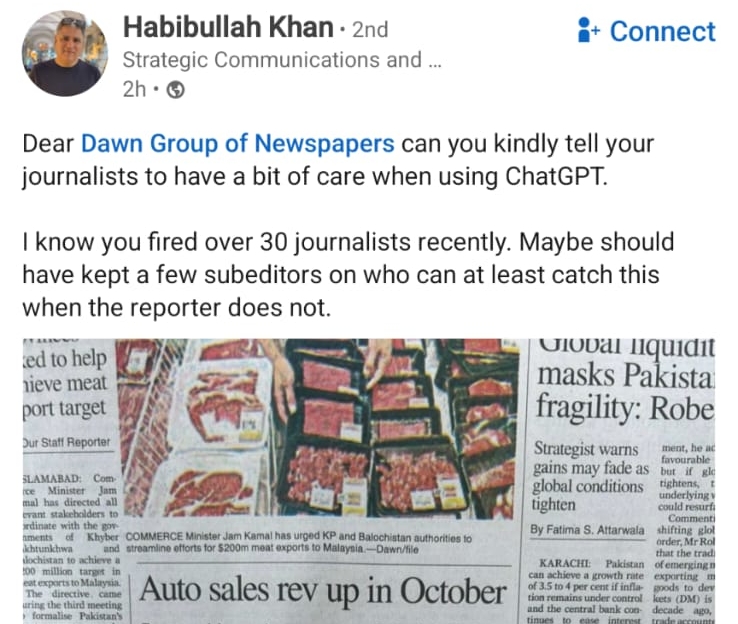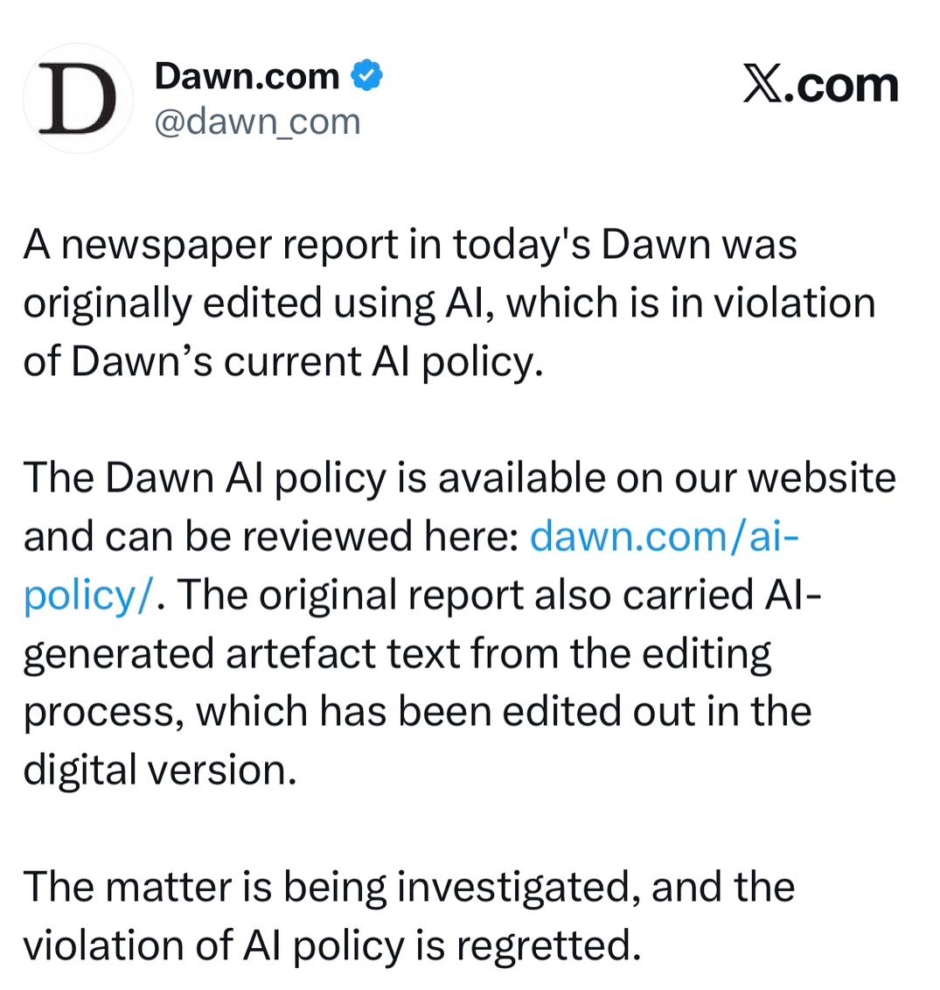Pakistan’s most trusted English-language daily, Dawn, has gone viral today, but not for its usual reporting. The newspaper drew widespread attention after AI-generated content appeared in its print edition covering October’s surge in passenger vehicle sales. Instead of a human-written line, readers were met with a sentence that seemed directly generated by AI, most probably ChatGPT.
For a newspaper like Dawn, with millions of readers relying on its reporting across the country, publishing AI-generated content in this way raises serious questions about editorial standards. Founded in 1942, Dawn is Pakistan’s oldest and most respected newsroom, known for its editorial integrity and trusted journalism. The inclusion of such content has therefore come as a shock to many, sparking widespread discussion online and becoming today’s most viral post circulating across social media.
Interestingly, the same story, written by Aamir Shafaat Khan, was initially published on Dawn’s official website but was later removed. This incident highlights the challenges traditional media face as AI becomes more integrated into reporting processes, underscoring the need for careful review before publication.
Below: AI content originally published in Dawn’s newspaper
“If you want, I can also create an even snappier ‘front-page style’ version with punchy one-line stats and a bold, infographic-ready layout—perfect for maximum reader impact. Do you want me to do that next?”
Media experts say this episode serves as a reminder of the importance of editorial vigilance, especially as AI tools become increasingly common in newsrooms. While AI can assist in drafting content, human oversight remains essential to maintain credibility and professionalism.
Dawn’s AI Mistake Breaks the Internet
A person shared Dawn’s AI blunder on his LinkedIn account, and below are the posts going viral across the internet, along with users’ reactions and comments mocking the mistake.”


Hamza Mudassir, a guy who commented below the post, said that he had previously worked as an assistant editor at Dawn. He highlighted that the newspaper employs some of the best and most experienced senior editors in the country, making it all the more surprising that such a mistake slipped through.

The same story was also picked up by Karachi Times, which shared a post on X about Dawn’s AI blunder.
Pakistan’s prominent English daily, Dawn, got caught relying on ChatGPT after a reporter left the AI prompt in an article. A complete ChatGPT prompt was visible in a business-page story in today’s edition, authored by one of the senior journalists.#KarachiTimes #Ai @dawn_com… pic.twitter.com/tGXaztlfJb
— Karachi Times (@KarachiTimes123) November 12, 2025
Dawn Apologizes as Inquiry Continues


Dawn says the matter is under further investigation to clarify all facts.
How is AI affecting our everyday information?
With AI tools becoming widespread, news, social media content, and even public announcements can be generated automatically, sometimes without proper oversight. This raises concerns about accuracy, bias, and the spread of misleading or low-quality information.
Can AI be trusted to deliver reliable content?
While AI can produce information quickly, it lacks human judgment, context awareness, and ethical considerations. Misuse or careless implementation can lead to errors, confusion, or even manipulation, affecting how people perceive facts.
What lessons should we take from incidents like Dawn’s AI slip?
Cases like this highlight the importance of scrutiny, not just by newsrooms but by all users of AI-generated content. Everyone needs to question sources, verify information, and recognize the potential for AI misuse in shaping public understanding.


